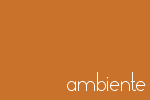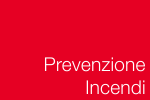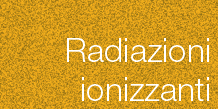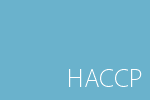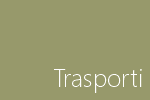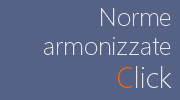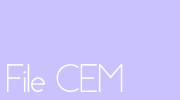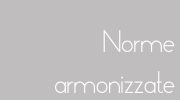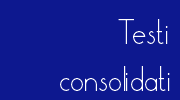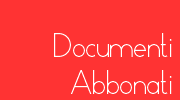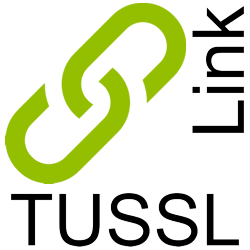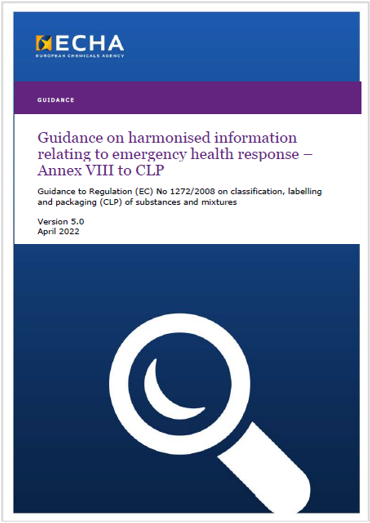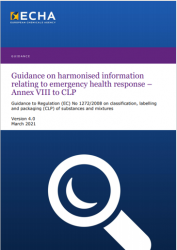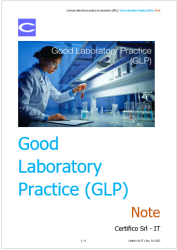Guidance on harmonised information relating to emergency health response
| ID 7875 | | Visite: 5261 | Documenti Chemicals ECHA | Permalink: https://www.certifico.com/id/7875 |
Guidance on harmonised information relating to emergency health response - Annex VIII to CLP / April 2022
ID 7875 | Update 17.05.2022 | Version 5.0 Aprile 2022
This document provides guidance on the provisions of Article 45 and Annex VIII to CLP. These concern the obligation to submit certain information on hazardous mixtures placed on the market, for emergency response reasons.
Document History
______
Version 5.0 April 2022
Update via fast-track procedure to further clarify and complete existing interpretations or make corrections following practical implementation and release of new features in the submission portal. In particular:
- Clarified in sections 3.1.1.1 and 4.2.5 obligations and options for importers and non- EU suppliers.
- Clarified in sections 3.1.1.2 and 4.2.4 obligations and options in case of toll formulation.
- Revised in section 3.5.2 interpretation of obligations during the transitional period to align with revised ECHA Q&A; clarification of obligations in case of Annex VIII notification made before relevant compliance date.
- Removal in section 4.2.3.1 of information on MiM’s identification which is to be provided in section 5.3.3. Example moved to section 5.3.3.
- Clarified in section 4.2.7 obligations to change UFI in case of GCIs.
- Clarified in section 5.3.3 use of GCIs; example 21 revised.
- Addition in section 5.5 of new footnote to address grouping of fully known MiMs in ICGs; addition of clarification about maximum concentration of a ICG in final mixture.
- Addition in section 7.4.2 of reference to changes in mixture resulting in mixture being non-classified.
- Clarified in section 7.4.5 obligations in case of splitting existing GCIs.
- Clarified in section 7.4.6 update rules in case of group submissions.
- Other minor corrections and clarifications throughout the document.
Version 4.0 March 2021
Update to implement the amendment of the legal text due to Commission Delegated Regulation 2020/1677 and Commission Delegated Regulation 2020/1676 of 31 August 2020 (the “workability amendments”). In particular:
- Added in section 3.1.1.4 reference to articles with integral substance or mixture intended to be released.
- Added in section 3.3 clarification about the borderline between mixture and substance.
- Added new section 3.3.1.3.1 to address the exemption for bespoke paints.
- Added in section 3.4 a clarification about mixture with end use not subject to notification requirements.
- Added in section 4.1 an introduction on the new workability solutions.
- Added in section 4.2.1 a clarification of the UFI concept applied to Interchangeable Component Groups, Standard Formulas and Fuels.
- Added in section 4.2.7 clarification about the need to update the UFI in case of notifications concerning Standard Formulas, fuels or containing Interchangeable Component Groups.
______
Version 3.0 May 2020
Update to implement the amendment of the legal text due to Commission Delegated Regulation 2020/11 of 29 October 2019.
In particular:
- Removed reference to Generic Product Identifier “Fragrances” throughout the document.
- Added in section 3.1.1 new subsection on import/manufacturing of combination of mixture and article.
- Added example 11 in section 4.2.3. In addition, clarified labelling and SDS requirements in case of multiple UFIs in the notes to the examples.
- Amended section 4.2.8 on labelling requirements and UFI placement and aligned with Guidance on Labelling and Packaging.
- Clarified in section 4.2.8.2 that exemption to labelling requirements applies to mixture used at industrial site.
- Added contact point in section 5.1.2, in addition to submitter details.
- Clarified and further developed pH requirements in section 5.2.3.
- Amended section 5.3.3 with regards to requirements for identification of MiMs when composition is not fully known. Clarified that for MiM not requiring an SDS, the compositional information is not mandatory.
______
Version 3.0 December 2019 Draft
This document provides guidance on the provisions of Article 45 and Annex VIII to CLP. These concern the obligation to submit certain information on hazardous mixtures placed on the market, for emergency response reasons.
______
Version 2.0 July 2019
This document provides guidance on the provisions of Article 45 and Annex VIII to CLP. These concern the obligation to submit certain information on hazardous mixtures placed on the market, for emergency response reasons.
Document History
- Restructured sections 3.1.1 and 3.1.2 to present separately activities leading to obligations under Art.45 and Art.4(10).
- Moved example 6 to section 3.1.2 and new figure added.
- Updated table 1 to include obligations for distributors. Removed column on “Obligations along the supply chain”.
In addition:
- Revised section 6.3 to reflect the updated terminology referring to the submission tool provided by ECHA.
- Revised section 6.4 to reflect the updated list of features provided by the ECHA submission tool.
Comment Date
- Replacement of “deadline” by “date of applicability” with reference to the timeline to meet the obligations.
- Updated the additional support section.
- Editorial changes and typos corrected
______
Version 1.0 February 2019
Guidance to Regulation (EC) No 1272/2008 on classification, labelling and packaging (CLP) of substances and mixtures
This document is the Guidance on the harmonised information relating to emergency health response. It is a comprehensive technical and scientific document on the implementation of Article 45 and Annex VIII to Regulation (EC) No 1272/2008 on the classification, labelling and packaging of substances and mixtures. CLP is based on the Globally Harmonised System of Classification and Labelling of Chemicals (GHS) and is implementing the provisions of the GHS within the EU. CLP now has relevance for European Economic Area (EEA) countries (i.e. it is implemented in the EU countries and in Norway, Iceland and Liechtenstein).
The objective of this document is to provide detailed guidance on the obligation to submit to Member States responsible bodies relevant information on hazardous mixtures placed on the market for formulating preventative and curative measures in case of accidents. The guidance is developed to primarily assist companies placing hazardous mixtures on the market in complying with their obligations. It is also intended to be a support tool for the appointed bodies in the Member States.
This guidance document was developed by ECHA with the support of a dedicated Working Group consisting of experts from Industry, Member State appointed bodies and poison centres. The project started in April 2017 and the working group had meetings and continuous discussions to develop the guidance text until December 2017. Finally the text was consolidated and edited by ECHA and underwent the formal consultation with ECHA Partners during 2018 and beginning of 2019.
This Guidance document is structured to present, after a general introduction, the main information. The main elements relevant to all the operators involved are then clarified before going into the details of the specific legal obligations.
The obligations are then described by following the same section structure of Annex VIII.
- Section 2 provides a list of definitions and clarifies the main terms used throughout the Guidance.
- Section 3 provides relevant information for the reader to understand whether they have obligations under Annex VIII of CLP. Therefore, section 3 clarifies who is required to submit information and to whom, by when and which mixtures fall under the scope of Annex VIII.
- Section 4, presents the need to identify the mixture using a unique formula identifier, the harmonised European categorisation system (EuPCS) and the possibility to opt for a limited or a group submission. This section further explains the basic elements and options linked to the submission of information, which should be known before the duty holder starts preparing the submission.
- Section 5 describes in detail the information to be submitted to the appointed body, as required in Annex VIII.
- Section 6 presents the available tools and the system put in place to allow industry and authorities to comply with the legal obligations.
- Section 7 explains what happens after the submission. This includes a description of the possible uses of the information submitted to the appointed bodies, the requirement that the submitter must keep the information up to date, and which changes trigger the obligation to update the submission.
- Section 8 lists the main available additional supporting tools.
...
Table of Contents
DOCUMENT HISTORY
PREFACE
1. INTRODUCTION
1.1 General introduction
1.2 Legal background
1.3 Aim of this guidance
1.4 Target audience of this guidance
1.5 Overview of the document
1.6 Links to legislation other than CLP
1.6.1 REACH Regulation
1.6.2 Other legislation
1.6.3 National legislation
2. ABBREVIATIONS/DEFINITIONS
3. OBLIGATIONS
3.1 Who is required to submit information?
3.1.1 Activities leading to the obligation to submit information according to Annex VIII
3.1.1.1 Obligations and supply chain
3.1.2 Activities not leading to submission obligations according to Annex VIII
3.2 Who receives the information?
3.2.1 Member States’ appointed bodies
3.3 What is the scope of Article 45?
3.3.1 Which mixtures require information to be submitted?
3.3.1.1 General exemption from CLP Regulation and Article 45
3.3.1.2 Exemptions from the obligation to submit information under Annex VIII
3.3.1.3 Voluntary submission of information
3.4 Use types
3.5 Timelines
3.5.1 Dates of application
3.5.2 Transitional period
4. GENERAL SUBMISSION REQUIREMENTS
4.1 Overview
4.2 The UFI for mixtures and products
4.2.1 What is a UFI?
4.2.2 Generation of UFI
4.2.3 How to use UFI
4.2.3.1 UFI and mixtures in a mixture
4.2.3.2 Us
4.2.5 UFI and non-EU suppliers
4.2.6 How to manage UFIs
4.2.7 New UFI as a result of composition changes
4.2.7.1 Changes in MiM’s UFI
4.2.8 Display, position and placement of UFI
4.2.8.1 Multi-component products
4.2.8.2 Exemption from labelling requirements [A.5.3]
4.3 EuPCS
4.4 Limited submission
4.4.1 Contacts for rapid access to ‘additional detailed product information’
4.4.2 Availability and content of the additional information and rapid access
4.5 Group submission
5. INFORMATION CONTAINED IN THE SUBMISSION
5.1 Identification of mixture and submitter [Part B.1]
5.1.1 Product identification [B.1.1]
5.1.2 Submitter details [B.1.2]
5.1.3 Details for rapid access to additional product information [B.1.3]
5.2 Hazard identification and additional information [Part B.2]
5.2.1 Classification of the mixture and label elements [B.2.1 and B.2.2]
5.2.2 Toxicological information [B.2.3]
5.2.3 Additional information [B.2.4]
5.3 Information on mixture components [Part B.3]
5.3.1 General requirements [B.3.1]
5.3.2 Components subject to submission requirements [B.3.3]
5.3.3 Information required on components
5.3.4 Limited submission [B.3.1.1]
5.4 Group submission [A.4]
5.4.1 Information to be provided in a group submission
5.4.2 Mixture components in a group submission
6. PREPARATION AND SUBMISSION OF INFORMATION: AVAILABLE TOOLS
6.1 UFI generator
6.2 XML format
6.3 Tools for preparing IUCLID XML files
6.4 Submission of information
6.5 Fees
7. POST-SUBMISSION
7.1 General introduction
7.2 Additional requests by appointed bodies
7.3 Use of submitted information
7.3.1 Security and confidentiality of the submitted information
7.4 Keeping information up to date
7.4.1 Introduction
7.4.2 Update rules according to Annex VIII
7.4.2.1 When declaring concentration ranges
7.4.2.2 When declaring exact concentrations
7.4.3 Other (voluntary) updates relevant for an emergency health response
7.4.4 How updates are technically handled
7.4.5 Updates – special cases with generic product identifiers
7.4.6 Updates – special cases with group submissions
7.5 Validity of the submission
8. ADDITIONAL SUPPORT
...
Fonte: ECHA
Revision
| Rev. | Date | Object | Author |
| 5.0 | April 2022 | Update | ECHA |
| 4.0 | March 2021 | Update | ECHA |
| 3.0 | May 2020 | Update | ECHA |
| 2.0 | July 2019 | Update | ECHA |
| 1.0 | February 2019 | Update | ECHA |
______
Collegati:
Orientamenti informazioni armonizzate risposta di emergenza sanitaria 3.0 IT
Regolamento CLP Testo Consolidato
Regolamento (UE) 2017/542
| Descrizione | Livello | Dimensione | Downloads | |
|---|---|---|---|---|
| Guidance on harmonised information 5.0.pdf Version 5.0 April 2022 |
1217 kB | 18 | ||
| Guidance on harmonised information 4.0.pdf Version 4.0 March 2021 |
1931 kB | 10 | ||
| Guidance on harmonised information 3.0.pdf Version 3.0 May 2020 |
1087 kB | 2 | ||
| Guidance on harmonised information 3.0 Draft.pdf Version 3.0 December 2019 - Draft |
1759 kB | 3 | ||
| Guidance on harmonised information relating to emergency health response v.2.pdf Version 2.0 July 2019 |
939 kB | 0 | ||
| Guidance on harmonised information relating to emergency health response.pdf Version 1.0 February 2019 |
1282 kB | 2 |
Tags: Chemicals Regolamento CLP Abbonati Chemicals Guida ECHA





